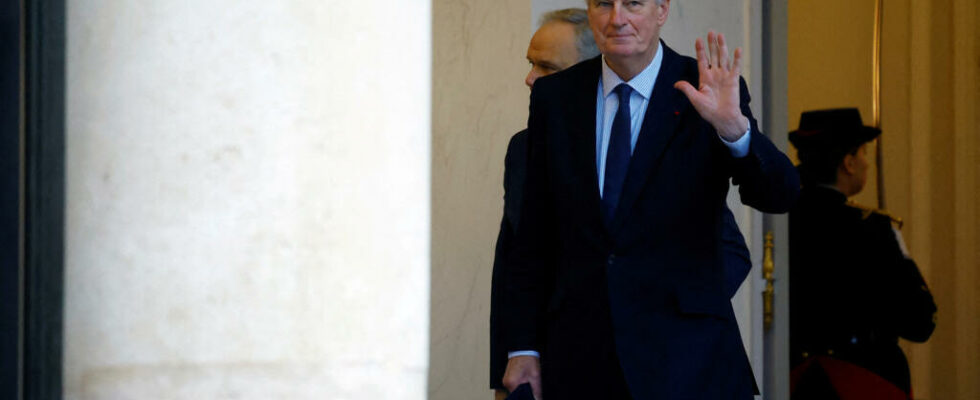This Wednesday, December 11 in the morning, the last council of ministers of Michel Barnier’s government took place. This is to present the special law necessary to ensure the continuity of public services in the absence of a budget. This formality is essential before moving on to the next stage: that of the appointment of the new Prime Minister.
3 mins
The short-lived Prime Minister Michel Barnier and his government met one last time on Wednesday morning at the Élysée Palace. This the day after an unprecedented meeting of the leaders of the different political parties, excluding the extreme right and radical left, around the French president Emmanuel Macron. The project of “ special law », to ensure the continuity of the State from January, due to lack of a 2025 budget, was presented on Wednesday to the Council of Ministers, indicated the spokesperson for the resigning government Maud Bregeon. It was the Minister of Public Accounts Laurent Saint-Martin who came to explain what this special law would be used for, which must be examined next week by Parliament, reports our journalist Valérie Gas on site.
Without a budget due to censorship, the latter is essential to ensure the continuity of the State and the financing of public services. But it will not allow, as LFI and the RN envisaged, to index the tax scale to inflation by an amendment. Seventeen million French people will have to face a tax increase if a new budget is not adopted very quickly. Asked about a possible amendment of the special law to remedy this situation, Laurent Saint-Martin referred to “ the very clear and precise opinion of the Council of State » on the special law: “ there cannot be new tax provisions » in this text. He therefore invited people to wait for the finance bill that the next government will present to hope for indexation.
With a deficit expected to exceed 6% of GDP this year, France displays the worst performance of the 27 member states of the European Union, with the exception of Romania, far from the 3% ceiling authorized by the EU . This ” temporary law » will be examined on Monday in the National Assembly, then on December 18 in the Senate. The text is reduced to its simplest expression to authorize the government to raise taxes and spend credits on the basis of the 2024 budget.
Waiting for a new Prime Minister
It is the Prime Minister that Emmanuel Macron has undertaken to appoint before Thursday evening who will have to prepare this new budget and have it voted on. The question now is who is the man for the job. During this council of ministers, Emmanuel Macron said that “ base » of parties bringing together the presidential camp and the right had not been able to “ in the state » be expanded, reported government spokesperson Maud Bregeon. He explained “ that it now remained to be seen whether some were ready to broaden this base or to agree on a principle of non-censorship “, she clarified. “ The country has neither the luxury of instability nor the luxury of immobility “, she pleaded, without specifying whether this meant that the president would choose a Prime Minister from this outgoing coalition.
Until the last moment, doubt will remain. But one name comes up: that of François Bayrou, whom the president met face-to-face again this Tuesday. The New Popular Front refuses this option and demands a Prime Minister from its ranks. Emmanuel Macron told the council of ministers that currently, there was no broader base than that which existed around Michel Barnier. Perhaps a way of saying that the new Prime Minister could not come from the left.
Also readDeficit, growth, inflation: the priorities for the next French government
